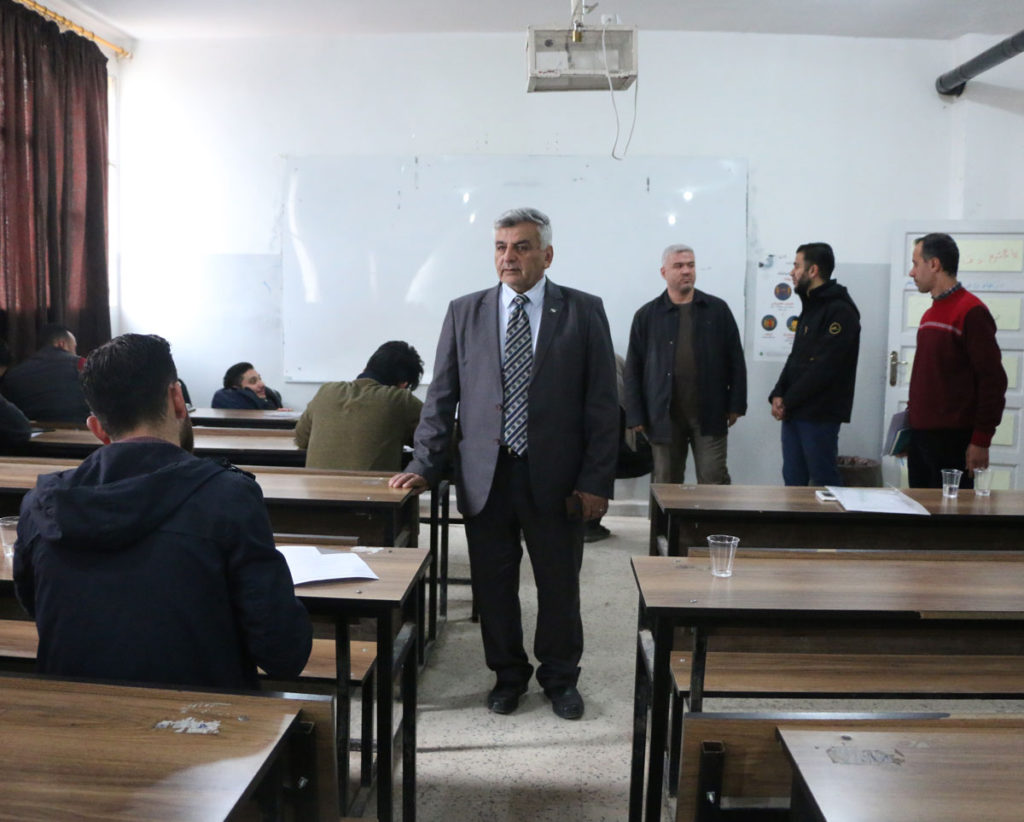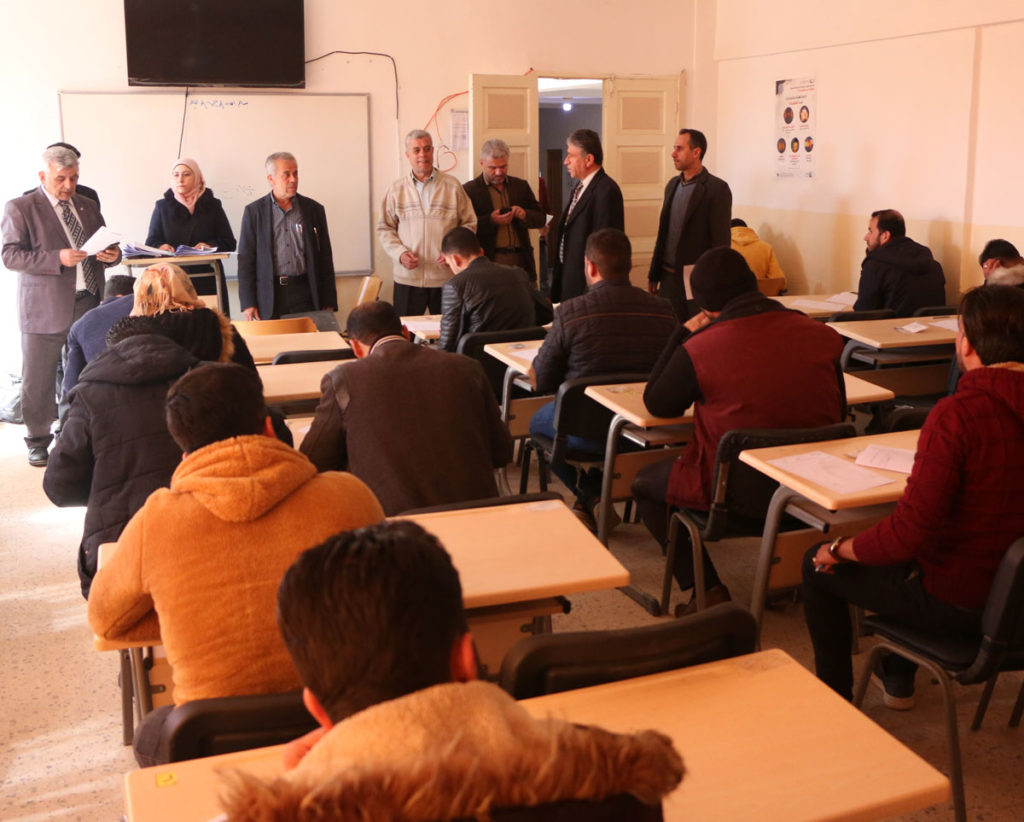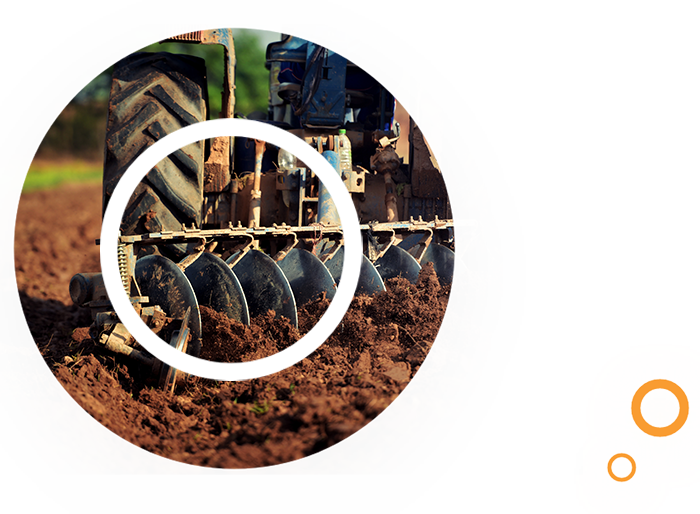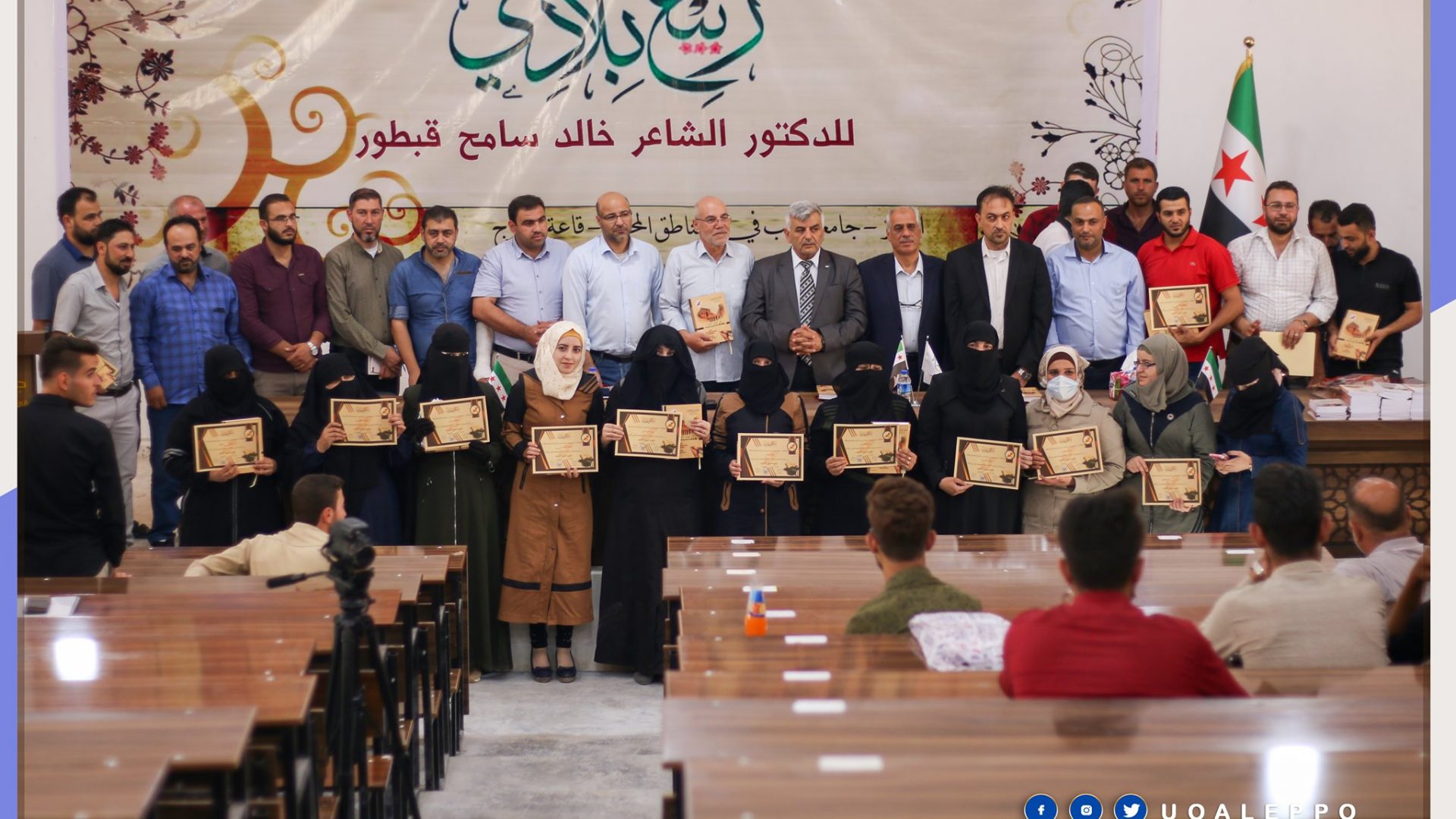About the College:
Agricultural sciences are ancient and modern sciences that are constantly developing in multiple scientific aspects related to many other sciences, such as life sciences, genetics, economics, dietetics and statistics, which contributes to preparing graduates with knowledge and theoretical and applied knowledge in various disciplines needed by the human being.
The University of Aleppo is able to open many scientific specializations in agricultural engineering, starting from the fourth year in the event that there are enough students in the third year, to secure the community’s need of various agricultural sciences, including allocations: (field crops – plant protection – environment – land and others) .

نبذة عن الكلية:
العلوم الزراعية من العلوم القديمة والحديثة دائمة التطوير في أوجه علمية متعددة ترتبط بكثير من العلوم الأخرى كعلم الحياة والوراثة والاقتصاد وعلم التغذية والإحصاء، والذي يساهم في إعداد خريجين يتحلّون بالعلم والمعرفة النظرية والتطبيقية في مختلف التخصصات التي يحتاجها الإنسان.
وجامعة حلب قادرةٌ على افتتاح العديد من التخصّصات العلميّة في الهندسة الزراعية، اعتبارا من السنة الرابعة في حال وجود عدد كافٍ من الطلّاب في السنة الثالثة، لتأمين حاجة المجتمع من العلوم الزراعية المختلفة تشمل خصص: ( محاصيل الحقلية – وقاية النبات- البيئة- الأراضي وغيرها ).


We strive to be true pioneers in agricultural sciences in its various specializations, to achieve excellence in agricultural sciences, to secure scientifically and practically qualified agricultural cadres to work in the field of agriculture, and to train students in practice. So that they can apply theoretical information on the ground; Where the student becomes able to deal with data, take the appropriate decision, and field cooperative training in various agricultural projects, and perhaps it is one of the most important applied educational methods that enable the student to apply what he studied in practice. So that he gets used to the work that he will practice upon his graduation and obtaining his certificate, and his work in his own field of specialization.
- The importance of agricultural sciences in the past, present and future.
- The link between agricultural sciences and the food necessary for human life and the continuation of his life, work and stability.
- The country’s urgent need for this specialization, which is growing day by day, to secure grain and food, especially in case of war.
- The importance of specialization in meeting the needs of community members in the food field from which all other sciences are launched.
- The correlation of scientific progress – in all sciences – and the economic stability of all developed countries in the world with agricultural stability and development, and its reflection on the level of high economic income of these countries.
Specialization objectives and fields of work:
The major aims to prepare highly qualified graduates in one of the following areas:

1. The General Division is specialized.

2. Specialization of field crops.

3.. Plant protection specialization.

4. Land allocation.
Means and tools:
Students will be provided with theoretical and practical knowledge through the following:
- 1- Modern academic courses that keep pace with agricultural knowledge development.
- 2- Practical applications: implementing learning skills and applying practical sessions to the vocabulary of the prescribed curriculum given in the institute's educational facilities from / the laboratories of garden fields .... / or in some companies, laboratories, and other governmental or private establishments during the same academic year.
- 3- Summer Productive Camp: It lasts for a whole month, during which the student learns all skills and experiences in the fields after the end of the school year.

College aspirations:
- 1. Inviting all faculty members to establish a scientific journal related to the various specializations of agricultural sciences.
- 2. Holding various scientific seminars in agricultural sciences and developing their programs.
- 3. Establishing workshops for the college’s students in all its specializations.
- 4. Continuous development of academic courses; According to the needs of the labor market in Syria and the Arab countries.
